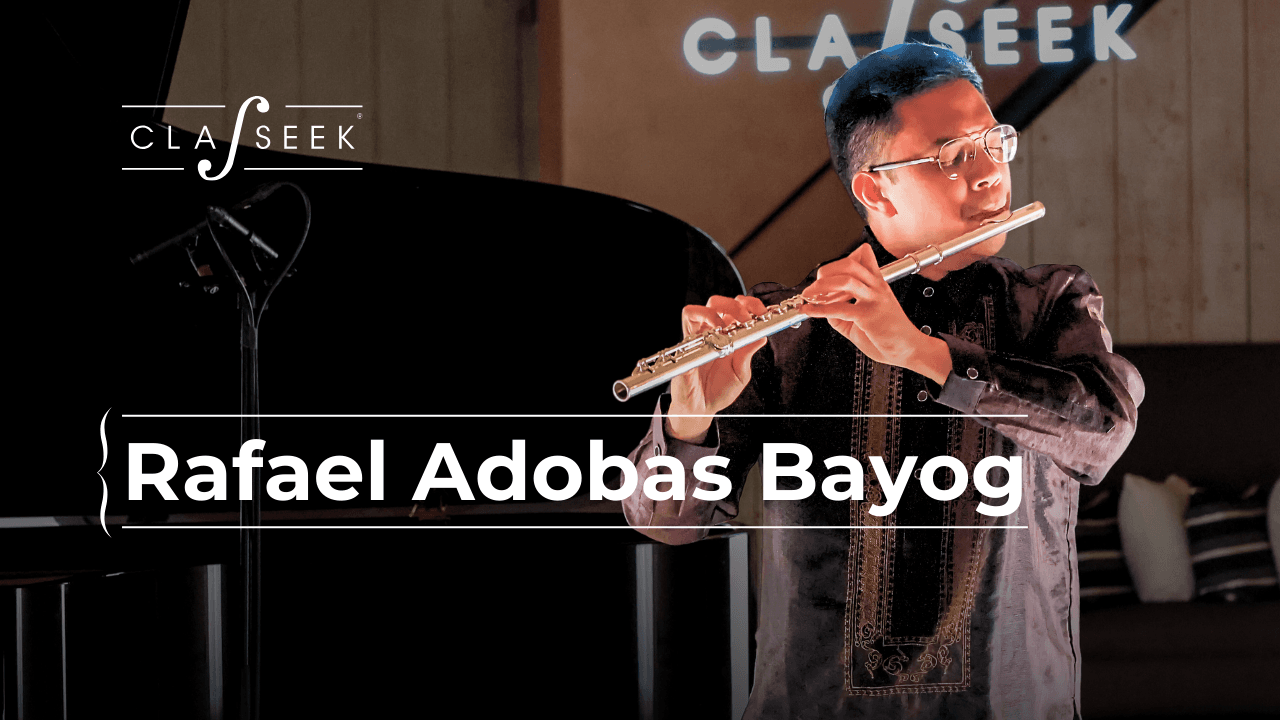
Programme
- E. Schulhoff - Sonate pour flûte et piano
- A. Jolivet - Chant de Linos
- M. de Falla - Siete canciones populares (arrangé pour flûte et piano)
Programme Info
Rafael Adobas Bayog (Flute), nominated by Emmanuel Pahud
Madoka Ueno (piano)
__
From jazz to myth, and beyond
“Printed kitsch, but skilfully made,” Erwin Schulhoff said of his own sonata for flute and piano. Written in 1927 for his friend, flutist René le Roy, Schulhoff’s dismissive critique of his work belies his early prominence as a leading Central European composer of the 20th century. Born in Prague in 1894, and living amid a turbulent political climate, Schulhoff continually experimented — one of the first to blend impressionistic and jazz influences in his compositions. His Sonata for Flute and Piano is similarly inventive, with four movements embodying distinct stylistic voices. The work begins with a deceptively traditional sonata-allegro, featuring jazz-inspired rhythms and impressionistic textures. This is followed by a restless Scherzo that transitions into a haunting ‘Aria.’ The final Rondo is a contrapuntal maze that closes this impressive and skilfully crafted flute sonata.
French composer André Jolivet, by contrast, considered his own works with greater reverence, describing them as “dedicated to restoring music’s original ancient sense, as the magical and incantatory expression of the religiosity of human communities.” This reverence is palpable in Chant de Linos, a one-movement work based on the Greek myth of Linos, the lyre teacher to Orpheus and Heracles, who met his end at the hands of his own instrument. The tale is woven into the relentless lamentation of Jolivet’s piece, which unapologetically challenges the flutist with a series of abrupt technical gymnastics.
It is not only myths and mysticism that infuse reverent intention in music. Manuel de Falla, regarded as one of the greatest Spanish composers of the early 20th century, was celebrated for his respect for native folk songs, which he seamlessly integrated into his works. His Siete canciones populares españolas is one of his most famous compositions, featuring seven folk songs from various regions of Spain. The listener is taken on a journey from the north of Spain with the mournful Asturiana, to the south with the lilting lullaby Nana from Andalusia. Closing with a flamenco-inspired Polo, these seven songs capture distinct characteristics of Spain.
Spanish-Filipino flutist Rafael Adobas Bayog will perform these works with pianist Madoka Ueno. As Bayog says, “I enjoy looking into the eyes of the audience, seeing that they are sharing the journey with me…each moment is unique… and will never be repeated.”
Programme notes written by Malika Jumbe.
Subscribe to Our Newsletter
Get the latest updates from all Classeek activities, events, and more - delivered straight to your inbox!